The outcome of the summit in Hiroshima stands in stark contrast to the efforts of leaders from around the world who are trying to end the conflict, write Medea Benjamin and Nicolas J. S. Davies.
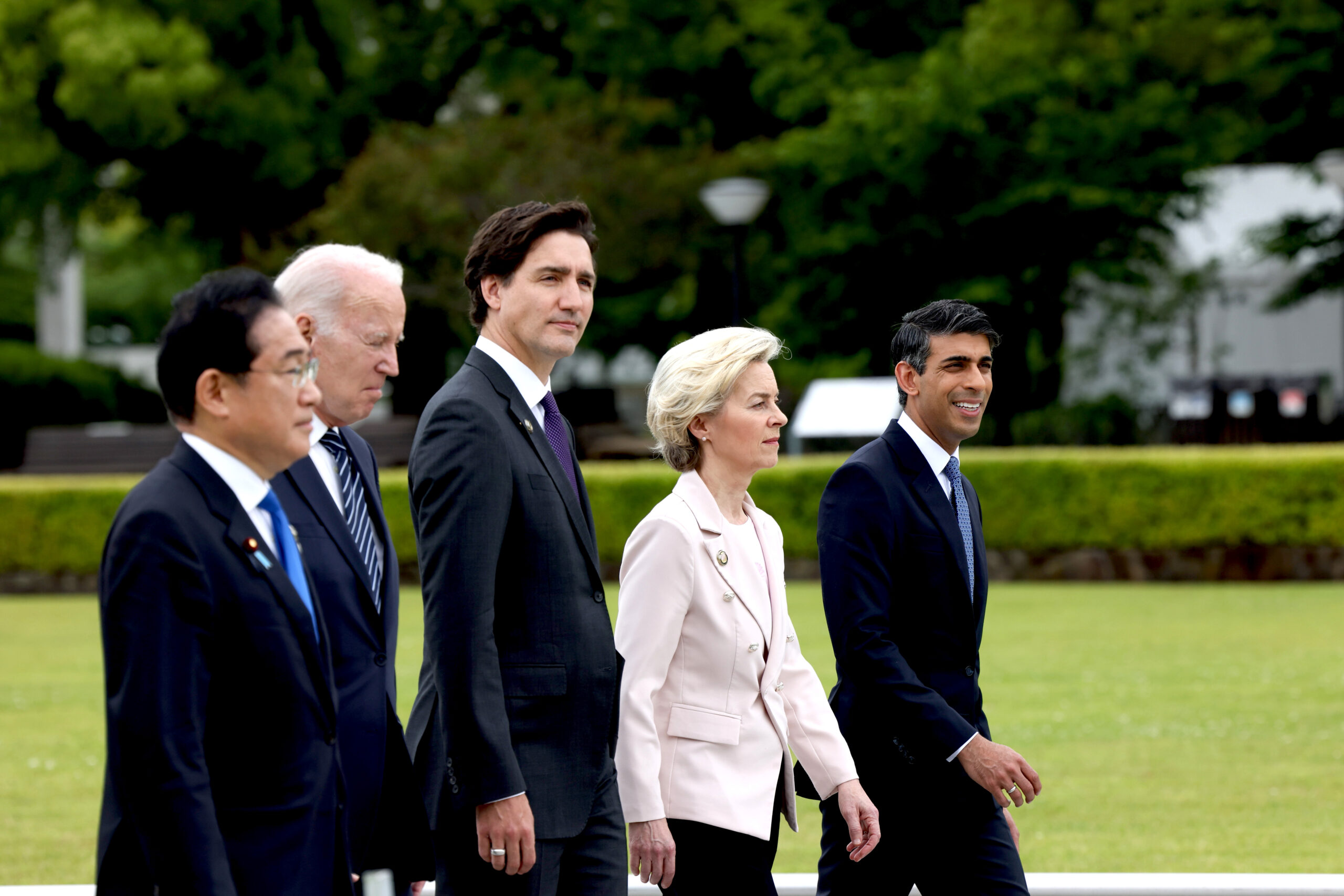
G7 summit participants in Hiroshima, Japan, on May 18. (Simon Dawson / No 10 Downing Street)
By Medea Benjamin and Nicolas J. S. Davies
Common Dreams

 When Japan invited the leaders of Brazil, India and Indonesia to attend the G7 summit in Hiroshima, there were glimmers of hope that it might be a forum for these rising economic powers from the Global South to discuss their advocacy for peace in Ukraine with the wealthy Western G7 countries that are militarily allied with Ukraine and have so far remained deaf to pleas for peace.
When Japan invited the leaders of Brazil, India and Indonesia to attend the G7 summit in Hiroshima, there were glimmers of hope that it might be a forum for these rising economic powers from the Global South to discuss their advocacy for peace in Ukraine with the wealthy Western G7 countries that are militarily allied with Ukraine and have so far remained deaf to pleas for peace.
But it was not to be. Instead, the Global South leaders were forced to sit and listen as their hosts announced their latest plans to tighten sanctions against Russia and further escalate the war by sending U.S.-built F-16 warplanes to Ukraine.
[Related: Caitlin Johnstone: US Weapons to Attack Crimea]
The G7 summit stands in stark contrast to efforts of leaders from around the world who are trying to end the conflict. In the past, the leaders of Turkey, Israel and Italy have stepped up to try to mediate. Their efforts were bearing fruit back in April 2022, but were blocked by the West, particularly the U.S. and U.K., which did not want Ukraine to make an independent peace agreement with Russia.
Now that the war has dragged on for over a year with no end in sight, other leaders have stepped forward to try to push both sides to the negotiating table. In an intriguing development, Denmark, a NATO country, has stepped forward to offer to host peace talks. On May 22, just days after the G7 meeting, Danish Foreign Minister Lars Løkke Rasmussen said that his country would be ready to host a peace summit in July if Russia and Ukraine agreed to talk.
“We need to put some effort into creating a global commitment to organize such a meeting,” said Rasmussen, mentioning that this would require getting support from China, Brazil, India and other nations that have expressed interest in mediating peace talks. Having an EU and NATO member promoting negotiations may well reflect a shift in how Europeans view the path forward in Ukraine.
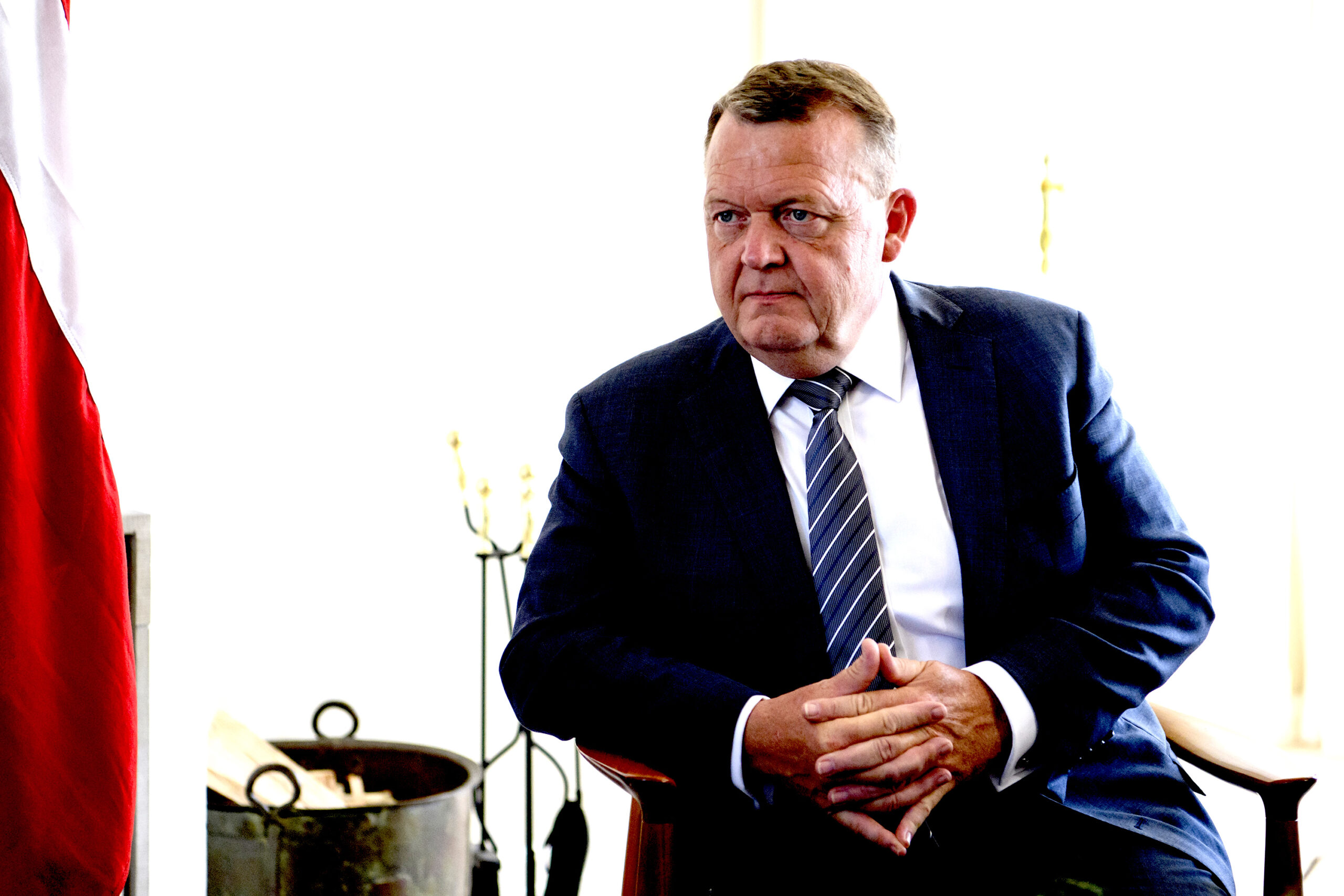
Denmark’s Foreign Minister Lars Løkke Rasmussen in 2018. (Kmu.gov.ua, CC BY 4.0, Wikimedia Commons)
Also reflecting this shift is a report by Seymour Hersh, citing U.S. intelligence sources, that the leaders of Poland, Czechia, Hungary and the three Baltic states, all NATO members, are talking to Ukraine’s President Volodymyr Zelensky about the need to end the war and start rebuilding Ukraine so that the 5 million refugees now living in their countries can start to return home.
On May 23, right-wing Hungarian President Viktor Orban said, “Looking at the fact that NATO is not ready to send troops, it’s obvious that there is no victory for poor Ukrainians on the battlefield,” and that the only way to end the conflict was for Washington to negotiate with Russia.
Meanwhile, China’s peace initiative has been progressing, despite U.S. trepidation. Li Hui, China’s special representative for Eurasian affairs and former ambassador to Russia, has met with Russian President Vladimir Putin, Zelensky, Ukraine’s Foreign Minister Dmytro Kuleba and other European leaders to move the dialogue forward. Given its position as both Russia’s and Ukraine’s top trading partner, China is in a good position to engage with both sides.
Lula Appoints Peace Envoy
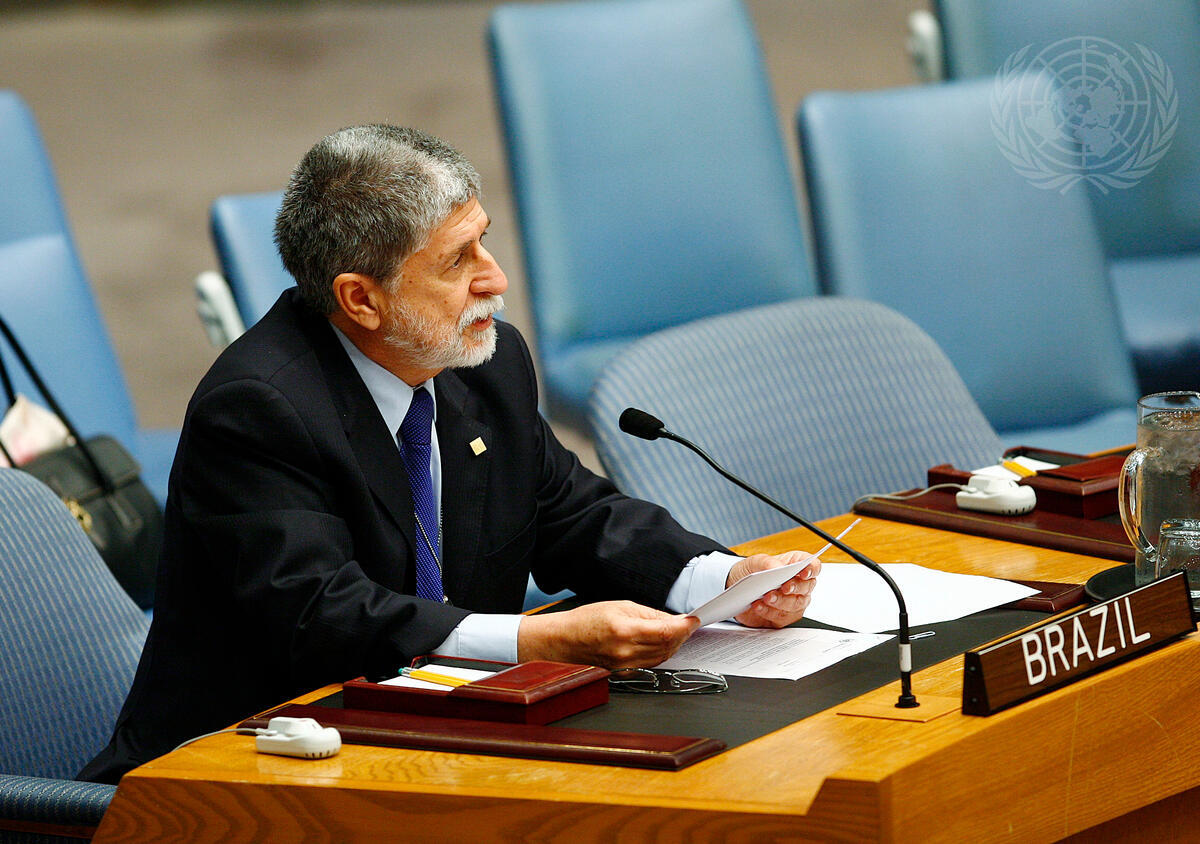
Celso Luiz Nunes Amorim, Brazil’s then foreign minister, addressing U.N. Security Council in 2009. (UN Photo/Erin Siegal)
Another initiative has come from President Lula da Silva of Brazil, who is creating a “peace club” of countries from around the world to work together to resolve the conflict in Ukraine. He appointed renowned diplomat Celso Amorim as his peace envoy.
Amorim was Brazil’s foreign minister from 2003 to 2010, and was named the “world’s best foreign minister” in Foreign Affairs magazine. He also served as Brazil’s defense minister from 2011 to 2014, and is now Lula’s chief foreign policy adviser. Amorim has already had meetings with Putin in Moscow and Zelenskyy in Kyiv, and was well received by both parties.
On May 16, South African President Cyril Ramaphosa and other African leaders stepped into the fray, reflecting just how seriously this war is affecting the global economy through rising prices for energy and food. Ramaphosa announced a high-level mission by six African presidents, led by President Macky Sall of Senegal. He served, until recently, as Chairman of the African Union and, in that capacity, spoke out forcefully for peace in Ukraine at the U.N. General Assembly in September 2022.
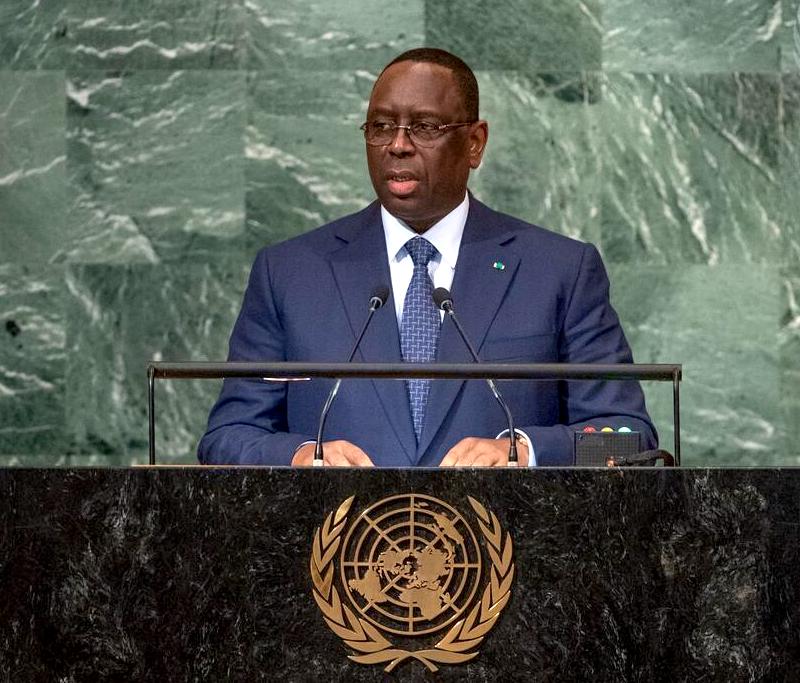
Senegal’s President Macky Sall addressing U.N. General Assembly on Sept. 20, 2022. (UN Photo/Cia Pak)
The other members of the mission are Presidents Denis Sassou Nguesso of Congo, Abdel Al-Sisi of Egypt, Yoweri Musevini of Uganda and Hakainde Hichilema of Zambia. The African leaders are calling for a ceasefire in Ukraine, to be followed by serious negotiations to arrive at “a framework for lasting peace.” U.N. Secretary-General Guterres has been briefed on their plans and has “welcomed the initiative.”
[Related: 66 Nations at UN Say ‘End War in Ukraine’]
Pope Francis and the Vatican are also seeking to mediate the conflict. “Let us not get used to conflict and violence. Let us not get used to war,” the pope preached. The Vatican has already helped facilitate successful prisoner exchanges between Russia and Ukraine, and Ukraine has asked for the pope’s help in reuniting families that have been separated by the conflict. A sign of the pope’s commitment is his appointment of veteran negotiator Cardinal Matteo Zuppi as his peace envoy. Zuppi was instrumental in mediating talks that ended civil wars in Guatemala and Mozambique.
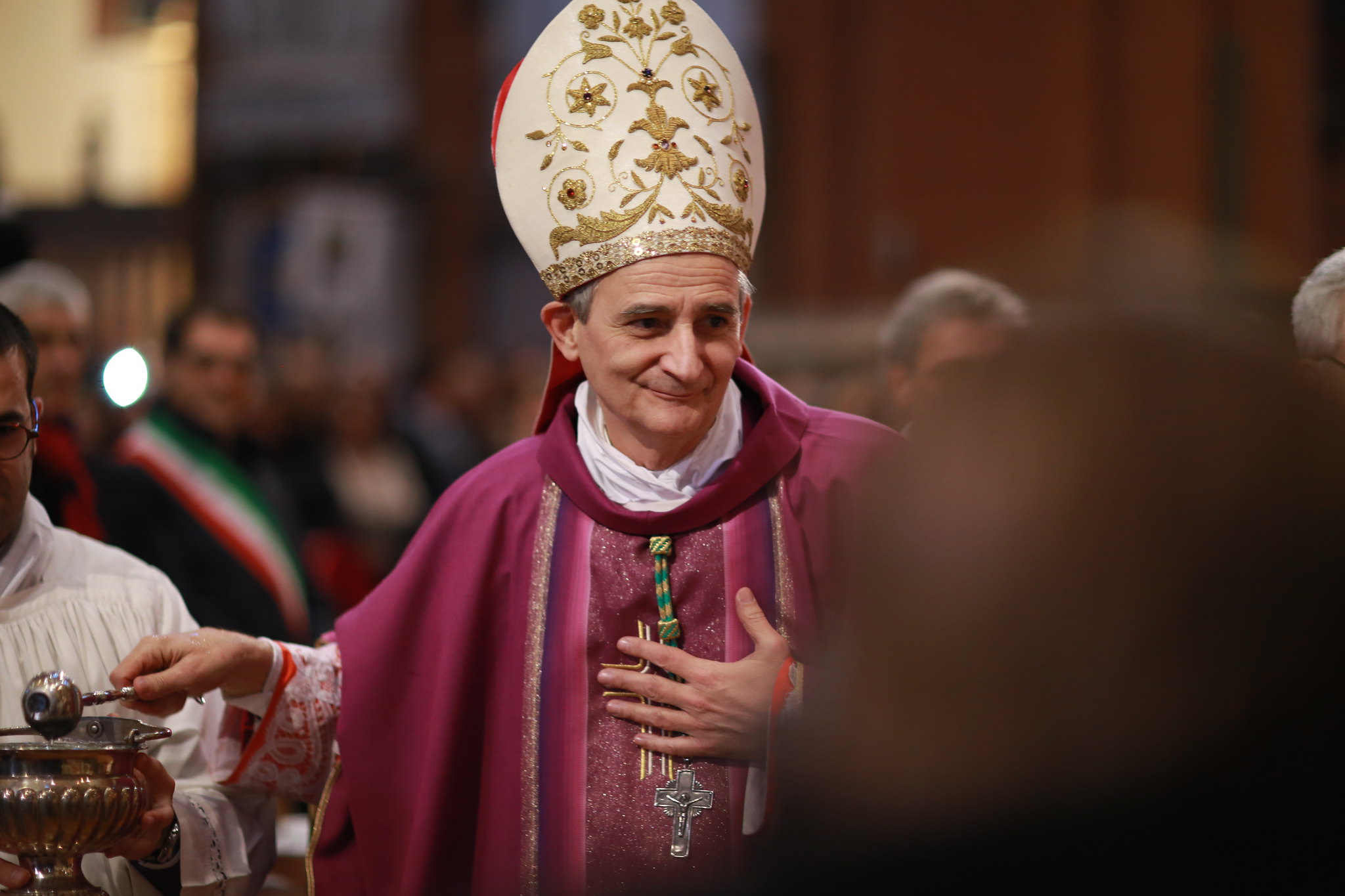
Matteo Zuppi in 2015. (Francesco Pierantoni/Flickr, CC BY 2.0)
Will any of these initiatives bear fruit? The possibility of getting Russia and Ukraine to talk depends on many factors, including their perceptions of potential gains from continued combat, their ability to maintain adequate supplies of weapons, and the growth of internal opposition. But it also depends on international pressure, and that is why these outside efforts are so critical and why U.S. and NATO countries’ opposition to talks must somehow be reversed.
The U.S. rejection or dismissal of peace initiatives illustrates the disconnect between two diametrically opposed approaches to resolving international disputes: diplomacy vs. war. It also illustrates the disconnect between rising public sentiment against the war and the determination of U.S. policymakers to prolong it, including most Democrats and Republicans.
A growing grassroots movement in the U.S. is working to change that:
- In May, foreign policy experts and grassroots activists put out paid advertisements in The New York Times and The Hill to urge the U.S. government to be a force for peace. The Hill ad was endorsed by 100 organizations around the country, and community leaders organized in dozens of congressional districts to deliver the ad to their representatives.
- Faith-based leaders, over 1,000 of whom signed a letter to President Biden in December calling for a Christmas Truce, are showing their support for the Vatican’s peace initiative.
- The U.S. Conference of Mayors, an organization that represents about 1,400 cities throughout the country, unanimously adopted a resolution calling on the President and Congress to “maximize diplomatic efforts to end the war as soon as possible by working with Ukraine and Russia to reach an immediate ceasefire and negotiate with mutual concessions in conformity with the United Nations Charter, knowing that the risks of wider war grow the longer the war continues.”
- Key U.S. environmental leaders have recognized how disastrous this war is for the environment, including the possibility of a catastrophic nuclear war or an explosion in a nuclear power plant, and have sent a letter to President Biden and Congress urging a negotiated settlement.
- On June 10-11, U.S. activists will join peacemakers from all over the world in Vienna, Austria, for an International Summit for Peace in Ukraine.
- Some of the contenders running for president, on both the Democratic and Republican tickets, support a negotiated peace in Ukraine, including Robert F. Kennedy and Donald Trump.
- Some of the contenders running for president, on both the Democratic and Republican tickets, support a negotiated peace in Ukraine, including Robert F. Kennedy and Donald Trump.
The initial decision of the United States and NATO member countries to try to help Ukraine resist the Russian invasion had broad public support.
However, blocking promising peace negotiations and deliberately choosing to prolong the war as a chance to “press” and “weaken” Russia changed the nature of the war and the U.S. role in it, making Western leaders active parties to a war in which they will not even put their own forces on the line. [Consortium News argues that the nature of the war didn’t change; it was the nature of the Western war from the beginning.]
Must our leaders wait until a murderous war of attrition has killed an entire generation of Ukrainians, and left Ukraine in a weaker negotiating position than it was in April 2022, before they respond to the international call for a return to the negotiating table?
Or must our leaders take us to the brink of World War III, with all our lives on the line in an all-out nuclear war, before they will permit a ceasefire and a negotiated peace?
Medea Benjamin is co-founder of Global Exchange and CODEPINK: Women for Peace. She is the co-author, with Nicolas J.S. Davies, of War in Ukraine: Making Sense of a Senseless Conflict, available from OR Books in November 2022. Other books include, Inside Iran: The Real History and Politics of the Islamic Republic of Iran (2018); Kingdom of the Unjust: Behind the U.S.-Saudi Connection (2016); Drone Warfare: Killing by Remote Control (2013); Don’t Be Afraid Gringo: A Honduran Woman Speaks from the Heart (1989), and with Jodie Evans, Stop the Next War Now (2005).
Nicolas J. S. Davies is an independent journalist and a researcher with CODEPINK. He is the co-author, with Medea Benjamin, of War in Ukraine: Making Sense of a Senseless Conflict, available from OR Books and the author of Blood On Our Hands: the American Invasion and Destruction of Iraq.
This article is from Common Dreams.
Views expressed in this article and may or may not reflect those of Consortium News.
Support CN’s Spring
Fund Drive Today


The US strategic policy of full spectrum dominance is not even attempting to put a polite face on western supremacy. Unfortunately our addiction to permanent war and 20th century insanity is a supreme threat to all of human civilization in the 21st century.
All of humanity everywhere is at risk from the arms race in nuclear, cyber, space, covert, overt, biological, genetic, weather, economic sanction and anything else we can manage to weaponize. We are at risk right now and certainly not invulnerable in any sense.
I say off with their heads!
Uplifting article in the face of the ludicrous posture of the Deep State’s Biden administration. If only reason were to prevail, perhaps meaningful change on diverse transcendental issues could take place, or at least, begin.
G7. Axis of Arrogance.
“The initial decision of the United States and NATO member countries to try to help Ukraine resist the Russian invasion had broad public support.”
Of course these two very commendable journalists go on to negate this comment but censorship demands they still say it.
Their best effort on the UKR conflict in my opinion.
Why would Russia believe anything the west comes up with? No way, they need to make their surrounds secure just as the US did in the Cuban Missile Crisis.
Its no good proposing peace talks before the propaganda is confronted – Russia had no choice and the war is not a stalemate.
Can these journalists do what theduran is doing and invite anyone to come up with details that over rides the fact, that the west is totally responsible for this war.
The only way for Russia is to continue and take most of UKR and deal with the Na.i problem. After all the US elites manufactured it, since way back and they want world financial domination.
The US elites want world domination; remember operation paperclip, not co-operation, international law and a truly democratic reformed UN.
The rest of the world must unite against the global (a good part US) elites. Their vision for the 99% in any other era would be considered crazy.
Very difficult but necessary.
Onward the Smedley Butlers. Be informed, consolidate and block; their value system invites implosion, before they change our genome and virtually obliterate us.
Several years ago I watched Oliver Stone’s multi-part documentary The Untold History of the United States, In the section on WWII, Stone describes how Japan was planning to surrender to Russia weeks before the end of WWII, but the US bombed Hiroshima and Nagasaki to prevent Japan’s plan to surrender to Russia and instead surrender to the US because the US wanted the control the spoils of war and not Russia. Would the US neocons be crazed enough to repeat history in order to prevent Ukraine surrendering to Russia?
If you can find Stone’s documentary “Ukraine On Fire” from 2015-16, it does a good job of portraying the roots of the Russia-Ukraine conflict, which is why You Tube pulled it.
It can be viewed here; it’s free:
hxxps://watchdocumentaries.com/ukraine-on-fire/
Thanks, CN, for correcting the assertion that the “nature of the war” changed. As if blocking negotiations and seeking to weaken the RF
were not the plan ever since 2008 and earlier. And as if “Western leaders” were not “active parties to the war” all along!
Excellent commentary but I personally expect WWIII to happen before this ends.
Medea Benjamin is a badass! She has more courage than all the pathetic G7 put together and then some. (but that’s not really saying much is it?) She cites another badass truth-teller Caitlin Johnstone.
The G7 is really just the US imperial overlords and their lickspittle, boot-licking sycophant vassals. What a sad bunch.
As we who have followed this issue know and other commenters have pointed out, diplomacy has been pursued by Russia since the US-backed coup in 2014. The US doesn’t do diplomacy, it does war (in all forms, information, economic “sanctions”, supplying logistics and weapons, political support etc.)
As Vijay Prashad said in his article, the G7 should be dissolved.
You enlarged my vocabulary in a first encounter of lickspittle , sycophant & vassals in a sentence. My ditto head congrats.
I propose a stronger tonic of stripping Lloyd Austin’s pension while preventing Blinken , Sillivan & Nuland from any future government or related employment coupled with their immediate dismissal. Another idea is to update the National Security Act of 1947 and remove the secret budgets and transfer of funds between intelligence agencies with a civilian review every 3 years auditing all spending records to foreign contractors. Yeah it’s a spittle full of radical change, therefore it should rest on a straight up election based on popular vote just for this alteration put in the hands of a panel picked by Henry Kissinger . (NOT)
A diplomatic solution requires sufficient assurance to Russia that NATO cannot simply ignore the agreement as it did the Minsk II accords, only to re-arm Ukraine for another war. That is the nature of the US/UK warmonger-financed governments, which will not change in the foreseeable future.
If the US had any intent or ability to abide by any agreement, it would have to provide at least:
1. Permission for Russia to take all of Ukraine by any means if it does not abide by the agreement;
2. All Ukraine states that voted to join the Russian federation obtain all of their former territory;
3. A DMZ wider than the range of any western weapons supplied, widened at the expense of Ukraine if it obtains further weapons. The DMZ can be farmland in use, returned after 3 generations, and monitored by the UN. Unfortunately that would intially have been about 20 miles but now is likely half of Ukraine.
Reparations between Ukraine and Russia probably should be ruled out.
But the US/UK should pay reparations to both sides.
Ukraine is not made up of “states”. Ukraine is itself a unitary state. It is made up of regions. When the city of Melitopol participated in the “referendum”, 90% of its population had been driven into internal or external exile. The referenda were conducted by Russian-appointed authorities under the watchful eye of the Russian army, all of this in a country outside Russia. Sound fair to you? No one in this forum seems to care what Ukrainians want. Here’s an idea for a referendum: have the UN administer a vote for all Ukrainians to participate in, both those who have managed to stay in their homes and those who have been forced out. Let them vote on what they want for their individual regions. A neutral party needs to do this. And in the meantime, all the commentators should take the time to read the Ukrainian Constitution and what it says about the secession of regions and who must vote on that and under what conditions. It’s so very easy to play fast and loose with a country’s territory when it’s not your own.
I agree, Juan. It is great to see anyone who wants to stop this catastrophe, and really appreciate their sentiments. However, the caveat that CN inserted is most certainly correct. In addition, that ship, I am afraid, has sailed. There is no longer a possibility that the Russian Federation will ever trust any representations made by the US Empire again. Considering the Empire’s record, which is, briefly, that it has never made an agreement that it didn’t walk away from when it suited its purposes to do so, it is startling that anyone hasn’t figured that out yet. Putin certainly has, and has criticized his own gullibility regarding his and the RF’s efforts to keep this catastrophe from happening. The assumption that is made in the article and by well-meaning leaders in the global south that all the US has to do is say, ok, let’s ‘negotiate’, and all will quickly fall into place, is naive in the extreme. The US can not, by definition, put forward a ‘peace plan’ for Ukraine that the RF could ever rationally accept. The only exception to that would require the dismantling of the US Empire itself, and all of the institutions and instruments of that Empire. That is to say, the US becoming literally incapable of doing anything to reverse any ‘peace plan’, and maybe returning to the long ago forgotten idea of becoming a republic. Sadly, I just can’t see that happening.
Medea Benjamin and Nicolas Davies. Please keep repeating this, you are voices for sanity.
There is an easy and cost free way to achieve peace: give Russia the security guarantees it is requesting. The longer this is delayed the harder it will be to create the trust needed for implementation.
Mightn’t the USA’s unwillingness to advocate peace negotiations be a neon sign for or a psychological assessment of its level of denial of its now challenged (precarious?) standing as “the” hegemonic global power dictating the so-called “rules based order”, enforcing it, and then breaking the rules when it suits with nary a peep about its errancy? At what point will the threshold of nations opposing the USA’s stubborn insistence on war swell sufficiently to make continued resistance by the USA and its international isolation an almost laughable humiliating folly?
Peace would be a good resolution, but how much of Ukrainian territory and sovereignty are they willing to cede to Putin?
Doctor,
Your use of the term “but” negates your peace wish; your use of an individual’s name is hate mongering.
The ceding of land would not be to the Russian President, rather a prelude to freedom of Ukrainian citizens.
“The possibility of getting Russia and Ukraine to talk depends on many factors, including their perceptions of potential gains from continued combat, their ability to maintain adequate supplies of weapons, and the growth of internal opposition.”
Where have they heard of “the growth of internal opposition” in Russia? If anything, the opposition is largely that Putin should escalate. Needless to say, Russia has adequate weapons if the west stops supplying Ukraine. The potential, and necessary, gain from Russia’s point of view is still to de-militarize and de-Nazify Ukraine. All people of conscience must demand that as well.
“The U.S. rejection or dismissal of peace initiatives…”
After the admission that both Minsk Accords were never meant to be implemented, but were to strengthen Ukraine, what is the basis for trust at the negotiating table.? Ukraine will surrender after Russia wins on the battlefield.
“The initial decision of the United States and NATO member countries to try to help Ukraine resist the Russian invasion had broad public support.”
Do Benjamin and Davies still think it was a Russian invasion, rather than an intervention in response to the Donbass cries for help after 12,000 civilian deaths following the coup?
Dan Kovalik is one attorney who has the courage to defend Russia’s actions under international law.
Kudos to Medea Benjamin for being such a loving peace Dove….